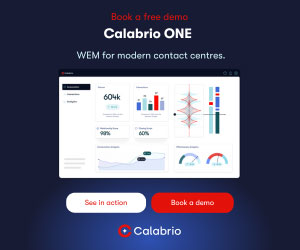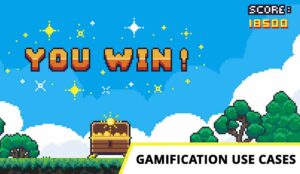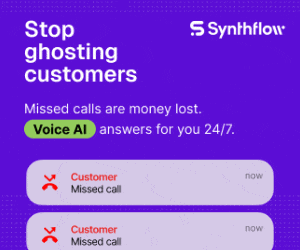Kat Worman of Calabrio shares best practices from a number of contact centres, highlighting how they have made gamification work for them.
Modern contact centres use gaming science and psychology to increase agent productivity while reinforcing positive behaviours.
This “gamification” incentivises and recognises agents, motivating them to meet or exceed expectations by completing specific objectives and outpacing their peers.
But gamification’s ultimate goal is a customer-oriented one: superior experiences that result in more satisfied and longer-term customers.
Developing your first gamification programme might seem overwhelming, but it doesn’t have to be.
To help you get started, it’s good to think about gamification through the lens of one or more of these three key strategies:
- Rewards and recognition
- Training
- Peer competition
With these being such key areas, let’s break each of them down into greater detail.
Rewards and Recognition
Prizes are great, but they only work if you give agents rewards they actually want and recognise agents in ways that matter to them.
Here are a couple of tactics some contact centres use to recognise and reward their own agents:
An Incentive Structure – One contact centre set up a full incentive structure to keep its agents engaged. Rewards are given to agents who maintain higher adherence numbers, productivity numbers and quality scores. Weekly rewards are given for the lowest weekly wrap time and highest weekly adherence.
Bingo Programme – Another contact centre used a BINGO card programme where agents stamp a space when they complete designated activities (e.g. hitting their outbound call target) and demonstrate preferred behaviour (e.g. achieving 100 percent schedule adherence). Those agents who achieve “BINGO” receive a work-from-home day of their choice.
Gift Cards – A different contact centre had another approach of giving gift cards to agents who meet quarterly key performance indicators (KPI), attendance and quality score targets.
Training
Both new-hire onboarding and ongoing skills development are important programmes for the modern contact centre. Here is how a few Calabrio customers use gamification for both needs:
Hot Potato – One contact centre uses the “Hot Potato” ball-throwing game to teach new agents how important it is for the contact centre to operate as a single entity and what happens when one agent disengages from the team—such as when they take a break at the wrong time, call in sick, etc.
The Bingo Training Game – Another contact centre uses a similar BINGO game to that mentioned above to encourage sales trainees to keep their multiple product lines top-of-mind. In this game, managers mark off a BINGO square each time an agent speaks to a customer about a particular product focus area. The first trainee to get “BINGO” receives a cash prize and peer recognition.
The Advisor “Bytes” Initiative” – One contact centre went as far as creating a training programme featuring 11 “bytes” agents need to master to progress through the ranks of its customer service representative hierarchy. Via shared calls, coaching and standardised evaluation forms, agents learn skill sets for their current byte, which they must complete before they’re able to move to the next “byte”.
Peer Competition
Peer competition taps into agents’ competitive spirits by recognising “winners” (top performers);
Leaderboards – Some contact centres display a dashboard of top performers and their “scores” against key metrics set ahead of time as goals for them. Agents actively monitor the leaderboard to see who’s in first place, who’s rising to the top, who’s losing their lead, etc.
Badges – Other contact centres use visual representations awarded to individuals that track and measure agent status. Different badge styles or colours denote different accomplishments, with badges becoming more intricate and complex as agents advance to higher levels. Badge dashboards help agents learn about the badges they earn and are pursuing and track their individual performance stats.
Let the games begin!
Author: Robyn Coppell
Published On: 11th Apr 2019 - Last modified: 16th Apr 2019
Read more about - Guest Blogs, Calabrio















